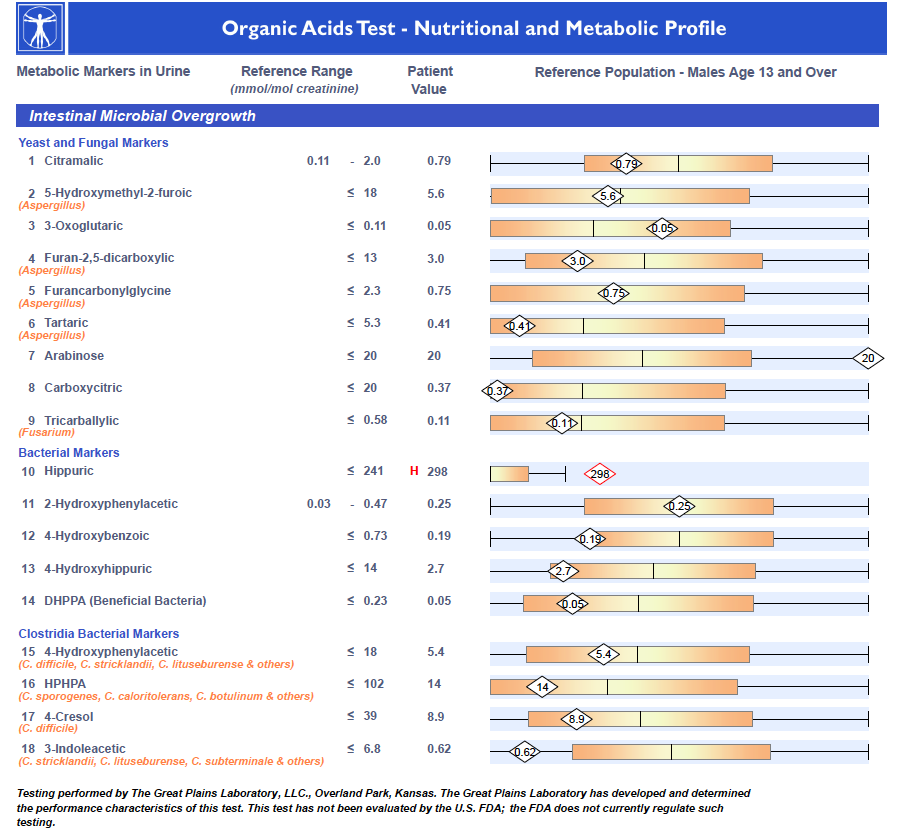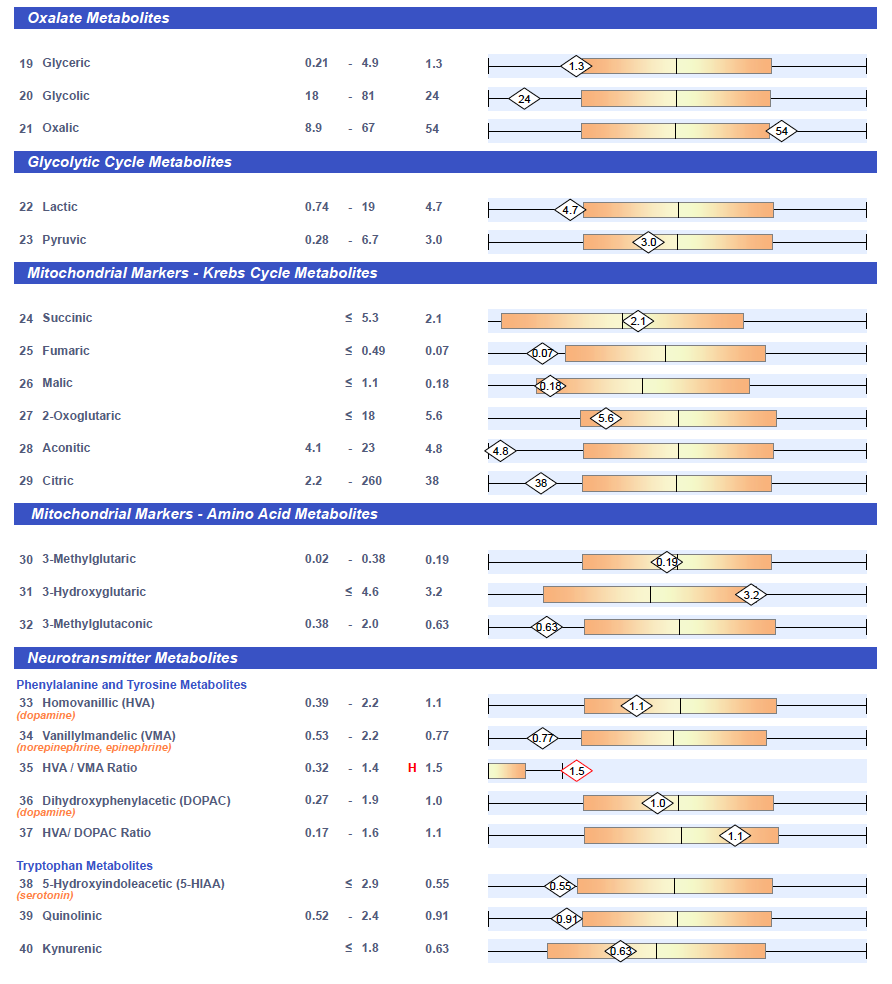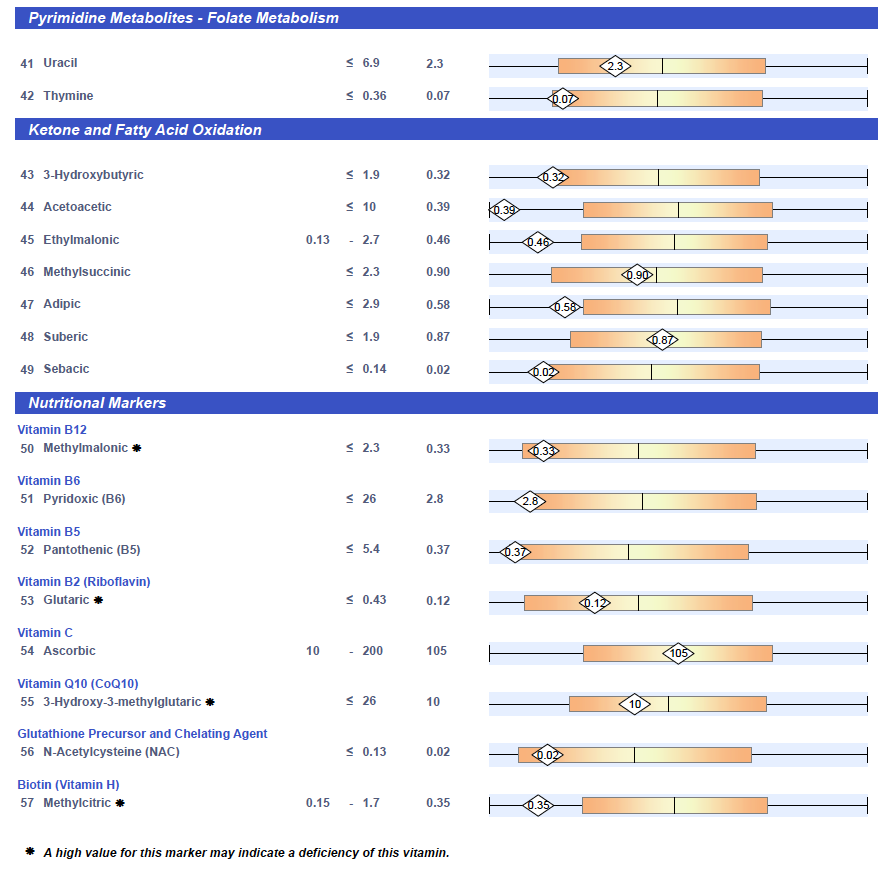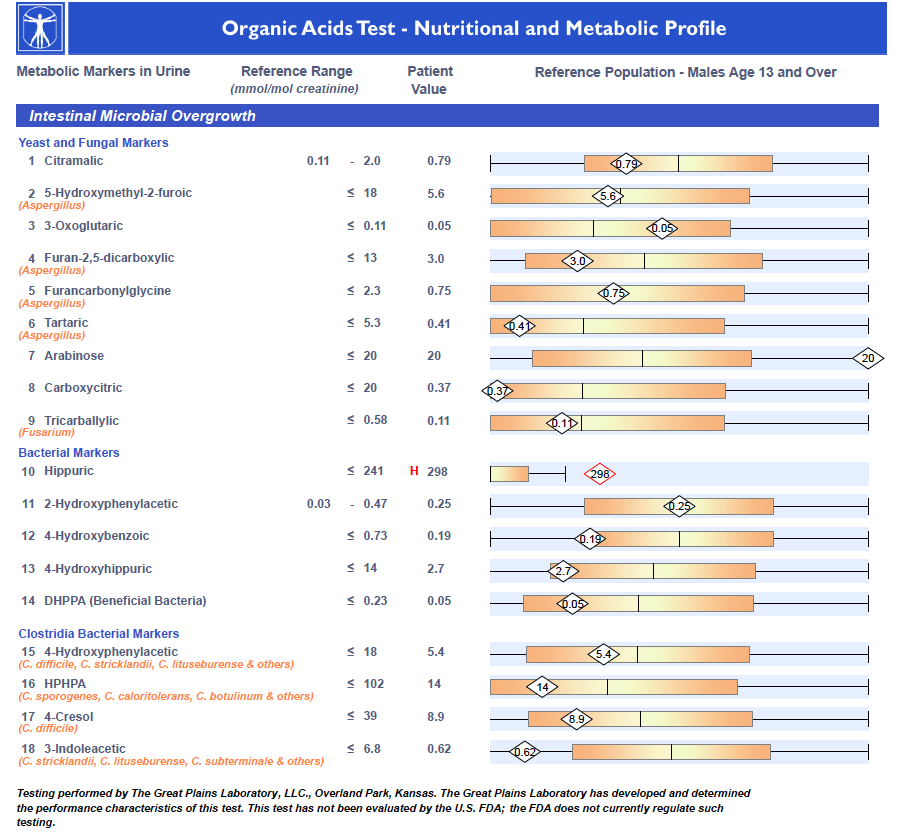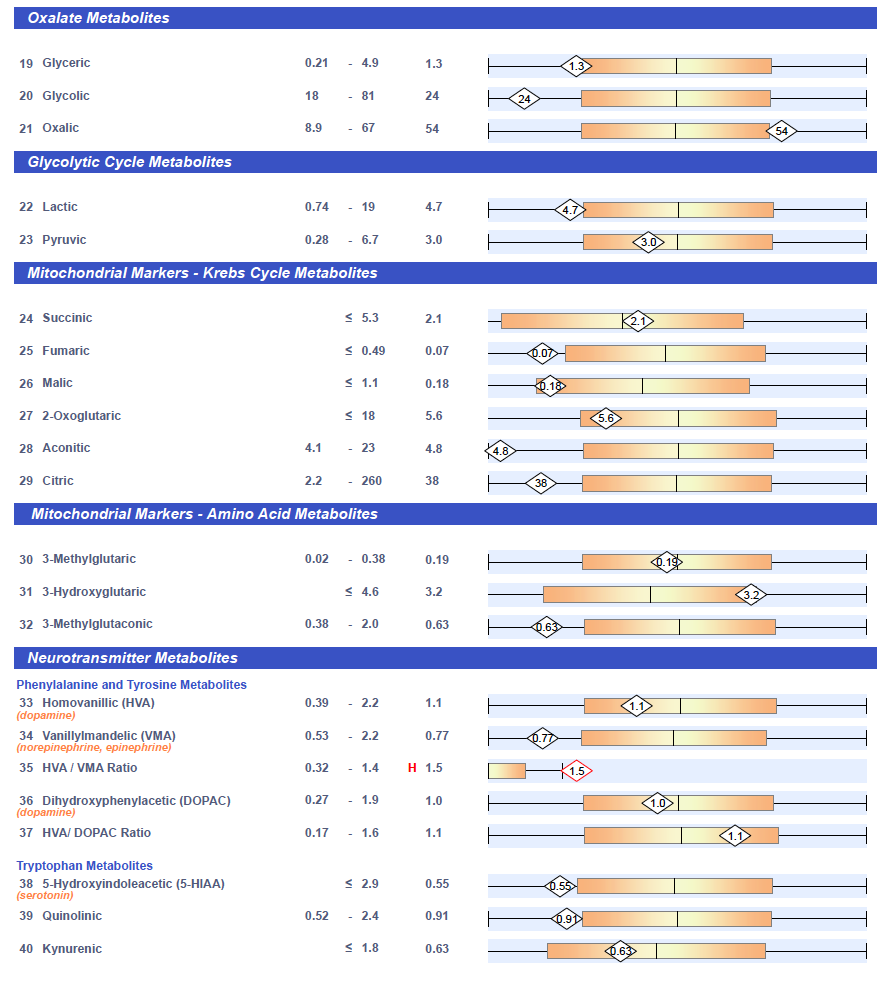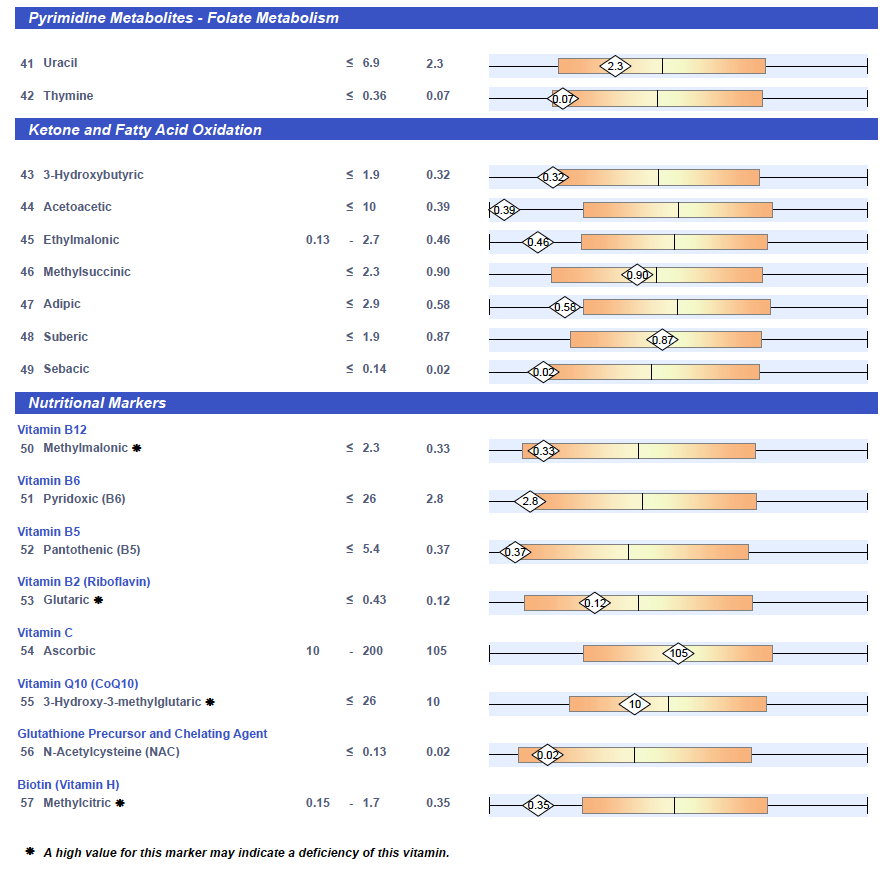The Organic Acids Test (OAT) by MosaicDX (formerly Great Plains Lab) is a straightforward and effective method for evaluating various metabolic pathways, shedding light on imbalances and nutritional requirements. This test examines 76 organic acids in a single urine sample, providing valuable insights for individuals grappling with complex chronic conditions.
Individuals with chronic illnesses and neurological disorders often excrete abnormal organic acids in their urine. Contributing factors to these elevated levels may include oral antibiotic usage, immune deficiencies, high sugar diets, infections, and genetic factors.
Metabolic processes in the body produce organic acids through the digestion of proteins, carbohydrates, and fats. These acids play a vital role in generating cellular energy and supplying essential components crucial for cellular function.
Organic acids are chemical compounds produced during metabolism and excreted in urine.
Assessing organic acids offers a means for us to functionally evaluate patients' nutrient status. Elevated levels of organic acids in urine may indicate metabolic inhibition or blockage due to an inherited enzyme deficiency, nutrient deficiency, toxic accumulation, or the effects of medication.
Enzymes responsible for metabolizing organic acids rely on vitamins and minerals for proper functioning. Therefore, an increase in organic acids in urine may signal a functional requirement for these nutrients at a cellular and biochemical level, even if serum analysis yields normal results.
Test results can guide us in recommending the best nutrient supplement strategies
